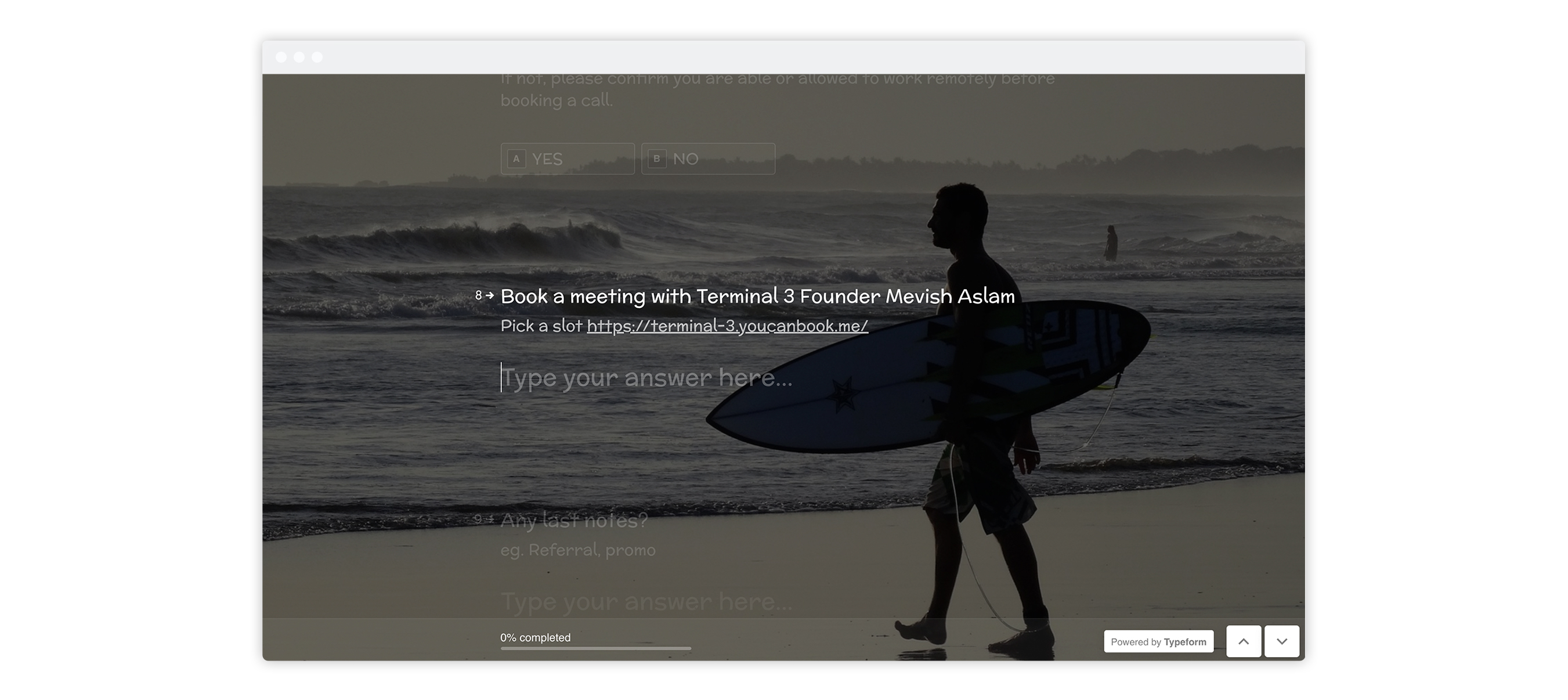Need business ideas? Try scratching your own itch
How Mevish Aslam launched a startup for digital nomads by solving her own problem.<br>

Today I listened to Noah Kagan’s podcast on how to come up with new business ideas. His advice was simple and direct: solve one of your own problems. Noah didn’t think about whether an idea could make billions or not, he simply wanted to solve a problem for himself.
Using his own advice, Noah turned sumome.com (now sumo.com) into an eight-figure business. It seems “scratch your own itch” is great advice for launching a startup.
Mevish Aslam can relate. In 2009, she made a decision to travel and work remotely. During her seven years on the road, she experienced the thrills and difficulties that digital nomads face. But in 2015, something happened. She joined a group of fellow entrepreneurs in Brazil, and it changed everything. Here’s Mevish:
Think about it. For seven years you’ve been traveling on your own. Then you share six months with an amazing community and form great friendships. After the program, your group disperses and heads off to their next destination. And then it hits you—the life of a digital nomad is a lonely business.
When the program ended, Mevish tried to fill the void with local events such as Startup Weekend—but it just wasn’t the same. Sharing significant time with a connected community and developing relationships seemed to make all the difference.
It turns out that being alone does more harm than originally thought, according to this article:
So Mevish decided to do something about it.
Bon voyage
After reconnecting with entrepreneurs at a reunion in Brussels, Mevish hatched the idea for Terminal 3. She wanted to solve three major problems for digital nomads:
- Lack of community
- Booking long-term accommodations
- Instability for remote workers
Mevish wanted to give other remote workers her “Brazil” experience. That means time to develop relationships and share business ideas, not the casual meet-and-greets you find in most major cities. Six months worked for Mevish, but she didn’t want people to feel like they had to commit to half a year. So they gave the option to stay anywhere from one to six months.
Booking travel accommodations for an unfamiliar place can take days of research, especially when you plan to stay longer than two weeks. Where should you stay? Is it safe? Is it loud or quiet?
That’s where Terminal 3 comes in. They’ll find a local apartment for you to stay in—no shared rooms, no hotels, no hassles. You can sleep in peace, but you need to get some work done too. So a stable internet connection is mandatory—besides, what’s a remote worker without Wi-Fi?
Terminal 3 provides a co-working space and a solid internet connection wherever you go. They have get-togethers, dinners, and community impact days—they’ve mentored local social entrepreneurs and worked with refugees. Participants also receive monthly coaching sessions followed by weekly check-ins to empower them to realise their business ideas.
Launching Terminal 3
Within a week after founding Terminal 3 in Brussels, Mevish put together a website and added Typeform to accept applications to their program.
Here’s Mevish on her experience:
You can check out their typeform here.
Soon after launching, Terminal 3 generated interest without spending a dime on marketing. And it didn’t take long for things to get moving.
Mevish says there’s a huge demand for Terminal 3. They’re currently overwhelmed by all the organic interest generated so far and their recent batch of applications exceeded the available spots on the program. Sounds like a great problem to have.
As the trend for remote workers increases, along with the awareness that travel is the ultimate learning experience, Mevish can focus on what matters to her most.
I couldn’t have said it better myself, Mevish. Want to see how Mevish put her typeform together? You can learn more here.
So, what problem have you been itching to scratch?
Header Images by John Jason & Michael Behrens




